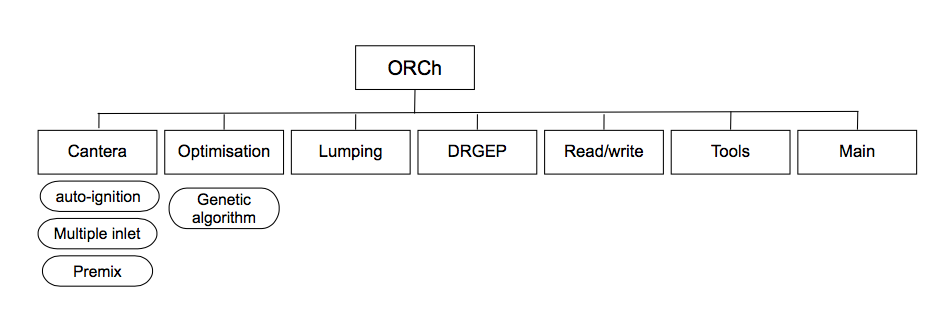Difference between revisions of "Main Page"
From orch
(→ORCh background) |
(→Architecture of the method) |
||
| Line 18: | Line 18: | ||
* [[Lumping]] | * [[Lumping]] | ||
| − | * [[DRGEP]] | + | * [[Directed Relation Graph with Error Propagation (DRGEP)]] |
* [[Read_write]] | * [[Read_write]] | ||
| Line 30: | Line 30: | ||
* [[Chemical kinetics]] | * [[Chemical kinetics]] | ||
| − | |||
| − | |||
* [[Quasi-Steady State analysis]] | * [[Quasi-Steady State analysis]] | ||
| − | |||
| Line 48: | Line 45: | ||
* [[Latex]] | * [[Latex]] | ||
| − | |||
=== User guide === | === User guide === | ||
Revision as of 17:56, 26 March 2017
ORCh background
ORCh (Optimised and Reduced Chemistry) is a fully automated method to reduce detailed chemical schemes. This page describes the architecture of the method and explains how to install and run ORCh.
ORCh is reported in two archival papers (make sure to cite those papers when using this program):
- N. Jaouen, L. Vervisch, P. Domingo (submitted) Auto-thermal reforming (ATR) of natural gas: An automated derivation of optimised reduced chemical schemes.
- N. Jaouen, L. Vervisch, P. Domingo, G. Ribert (submitted) Automatic reduction and optimisation of chemistry for turbulent combustion modelling: Impact of the canonical problem
Architecture of the method
Tools
User guide
